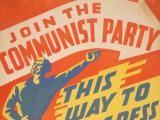Private Leonard Manning was the first New Zealander killed in combat since the Vietnam War.
United Nations
Events In History
The South-East Asia Collective Defence Treaty, or Manila Pact, aimed to contain the spread of communism in the region. The South-East Asia Treaty Organization (SEATO) was the institutional expression of this treaty.
Articles
1981 Springbok tour
For 56 days in July, August and September 1981, New Zealanders were divided against each other in the largest civil disturbance seen since the 1951 waterfront dispute. The cause of this was the visit of the South African rugby team – the Springboks. Read the full article
Page 3 - Politics and sport
South Africa's apartheid policies and attitudes created obvious problems for New Zealand rugby, given the prominence of Māori in the
The Cold War

Although the origins of the so-called Cold War can be traced back to the Bolshevik revolution of 1917, this intense ideological struggle between the Western powers and the Soviet Union really began after the Second World War. Read the full article
Page 3 - Choosing sides
New Zealand backed Britain and the United States against the Soviet Union as the Cold War began in the late 1940s. Like the other Western Allies, New Zealand’s relationship with
Page 4 - Treaties and alliances
During the 1940s and 1950s New Zealand signed a series of collective treaties with Britain and the United States aimed at countering the threats of Japanese military resurgence
New Zealand and the United Nations

New Zealand has a tradition of commitment to the concept of collective security. It was a member of the League of Nations between the world wars and was active in the establishment of the United Nations in June 1945. Read the full article
Page 1 - New Zealand and the United Nations
New Zealand has a tradition of commitment to the concept of collective security. It was a member of the League of Nations between the world wars and was active in the
Page 3 - Participation in the United Nations
The United Nations Charter established six principal organs to achieve its aims. New Zealand has played a part in all of these
Page 4 - Universal Declaration of Human Rights
In 1950 the United Nations General Assembly passed a resolution to adopt 10 December as Human Rights Day. New Zealand has participated actively in human rights deliberations at
Page 5 - Further information
Find out more about New Zealand and the United
New Zealand in Samoa
New Zealand was ill-equipped to cope with the Western Samoa mandate it was allocated by the League of Nations in 1920. The Mau movement's passive resistance culminated in the violence of 'Black Saturday', 28 December 1929, which left 11 Samoans and one New Zealand policeman dead. Read the full article
Page 8 - Towards independence
On 4 June 2002 Prime Minister Helen Clark offered 'a formal apology to the people of Samoa for the injustices arising from New Zealand's administration of Samoa in its earlier





